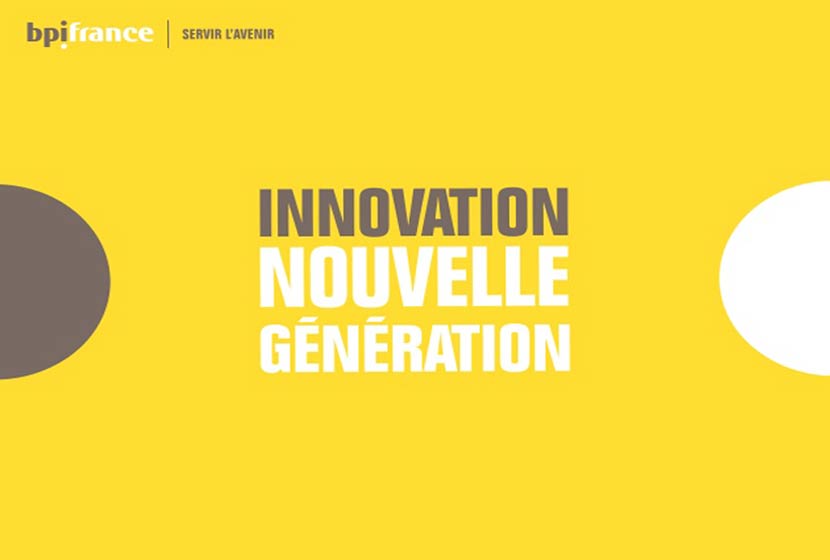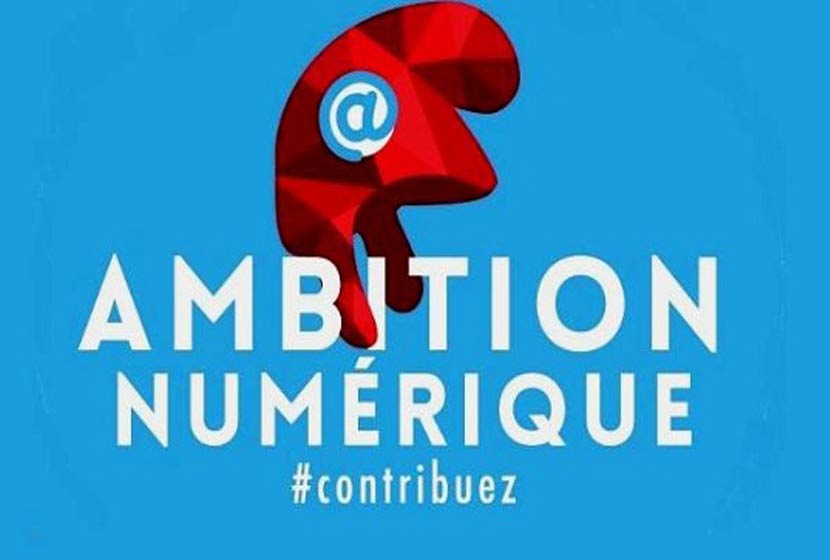New Generation Innovation: Bpifrance, in partnership with the FING, presents a new Innovation reference framework to better support future French nuggets and become the reference analysis tool for innovation financers in all its dimensions. This work highlights the importance of taking into account innovation in all its forms, beyond technological innovation alone. It was high time...
"We must constantly rely on an active vanguard. There is never a consensus prior to innovation.
Any transformative innovation is first and foremost a deviation. » Edgar Morin, French Sociologist and Philosopher
To broaden the scope of innovation in France and detect and support more innovative projects, Bpifrance has developed a new innovation reference system in collaboration with the Fondation Internet Nouvelle Génération (FING). Created with the participation of many innovative companies, this reference framework, designed to understand Innovation in all its forms, was unveiled on Monday, January 26, 2015 and will be shared with all stakeholders in the entrepreneurial ecosystem. With this new tool, Bpifrance and the FING want to call for a change in the way we look at Innovation by decompartmentalizing approaches and sectors, and thus take into account "new generation innovation".
Based on the observation that the criteria for granting funding linked to Innovation in France were too focused on the new technologies sector and did not allow to support all innovative projects, Bpifrance joined forces with the FING to redefine the notion of innovation in a broader way and thus better understand Innovation in all its forms.
As Bpifrance's mission is to bring out the champions of tomorrow, the public investment bank wanted to broaden the criteria for access to Innovation financing in order to encourage the development of these companies that are potential future world leaders in their field. To develop this new Innovation reference framework, Bpifrance and the FING have mobilized innovation support players and a dozen SMEs and start-ups, with the roadmap to better understand the different types of innovation and their financing needs.
This new reference system highlights six categories of innovation:
- product, service and usage innovation;
- process and organizational innovation ;
- marketing and commercial innovation ;
- business model innovation ;
- technological innovation ;
- social innovation.
Bpifrance will integrate the six categories of innovation in its analysis of an innovative project, with the question: "What is new about the project and how does it differentiate the company from the competition? "The public investment bank plans to invest eight billion euros in French companies between now and 2017. All the Innovation delegates from Bpifrance's 42 regional departments have already been trained in this new way of understanding innovation.
For Paul-François Fournier, executive director in charge of innovation at Bpifrance : "When Bpifrance was created, we realized that we had difficulty financing certain companies whose value creation was not essentially technology-based. We wanted to set up a new analysis grid in order to broaden our appreciation of innovation, and not to miss out on innovative companies that create value and are capable of becoming leaders in their market. Our objective is to share this new reference system with all the players in the field of innovation".
In addition, as part of its Nova plan launched in March 2014, and in order to provide the best possible support to entrepreneurs in need of financing, Bpifrance has carried out an upstream simplification project, in particular by reducing its decision-making times by a quarter and by training its 150 Innovation business managers in venture capital. In 2014, Bpifrance has devoted 1 billion euros to financing Innovation, an increase of 40 % compared to the previous year.
It was high time... Because in the face of globalization, placing innovation at the heart of collective entrepreneurial action seems obvious if France, which is facing major challenges today, is to consolidate its position as a key player in the global economy.
Overturning established orders
 "While France is currently facing major challenges to consolidate its position as a key player in the global economy, while competitiveness and growth are the two key issues for its development, while its companies are facing ever-increasing competition, the issue of innovation is central.
"While France is currently facing major challenges to consolidate its position as a key player in the global economy, while competitiveness and growth are the two key issues for its development, while its companies are facing ever-increasing competition, the issue of innovation is central.
We need a major cultural change so that innovation can take a decisive place in our country's economy.
We must learn to dare, to accept risk, experimentation, creativity. We must understand that innovation often takes a backward path, that it never arrives where we expect it to, that we must multiply initiatives. Making innovation everyone's business, from school to doctorate and from worker to senior manager, from the civil service to private enterprise, is a structuring challenge for the French economy.
I want to stress the central role of the company in this paradigm shift. How can we ensure that innovation is driven by all employees and not just by R&D and the marketing department? How can we set up an organization that can constantly generate new strategic options?
In the company that I have been managing for more than 10 years, we have worked to deploy genuine managerial innovation. We have profoundly changed our organization. We are trying to ensure that all employees are players in innovation. That the company is as agile as possible. And that it is part of an ecosystem with which we build the innovations of tomorrow. We have massively de-hierarchized our internal relationships and given a lot of autonomy to our employees, including in our plants. There is no longer an organization chart. The company is organized by product family, by community of expertise and by project.
The primary role of senior executives is to think about the company's strategy at 10 years, leaving more autonomy to employees in the operational management of the company. The employees thus participate actively in investment, recruitment and salary policy decisions and even in strategic thinking that involves the long term.
The results of this managerial innovation are extremely fruitful. We have withstood successive crises better than our competitors. We have achieved double-digit growth rates in a mature market. We have gained 5 points of market share over the last 3 years.
Our advice is simple: innovate! Make innovation the pillar of your strategy, in the service of your company's growth and our country's competitiveness. » Carlos Verkaeren, President of the Poult Group.
BPIFrance wants to change the way we look at innovation
To capitalize on our strengths and build the future, it is no longer enough to simply invest; it is imperative to change our approach, to change the way we look at innovation.
Innovation: an asset for France. Faced with the globalisation of the economy, innovation is one of the key factors in the competitiveness of companies. The energy and ambition of our SMEs, ETIs and large groups, as well as the tremendous momentum for the creation of companies in our country, testify to a France that is determined, optimistic and capable of raising mountains!
Innovation is also an essential source for the jobs of tomorrow, making it possible to tap into the pool of French talent with creativity and skills recognized outside our borders.
"Firms that innovate export more than those that do not. They export to more countries. Their exports grow faster and they are less sensitive to the economic situation. (Source: Innovation, a major challenge for France, Beylat-Tambourin report, (2013)).
Innovation, a question of approach above all. In the race for competitiveness, France has many assets: a population that is younger and better educated than the European average, a very high level of research, economic and technological fields with a global reach, infrastructures and public services that are among the best. In addition, considerable public resources are devoted to research and innovation, particularly under the Future Investment Program. Similarly, France is a land of investment: it has become Europe's second-largest venture capital centre behind the United Kingdom and the leading centre in continental Europe in terms of the number of deals.
But as the Beylat-Tambourin report notes, although France is relatively well positioned on its means indicators, the results are still too weak when it comes to comparing companies' investments in innovation and the valuation of their intangible assets.
Innovation is everywhere!
From the point of view of companies and their managers, (...) innovation is the result of a global process in which R&D is only one ingredient among others, to be integrated into a complex organisational approach. (Source: Pour une nouvelle vision de l'innovation, report by Pascal Morand and Delphine Manceau ( 2009 )).
Many of the innovations that have transformed their markets in recent years are not primarily technological in nature. For example: online social networks or Twitter messages have invented new forms of communication that are now part of the daily lives of hundreds of millions of people, without producing any significant technical innovation or, more often than not, relying on particularly advanced technologies: at the end of 2013, Twitter had only two patents ;
Zara has experienced the strongest growth among fashion retailers worldwide by choosing to renew its range every month: no restocking, no differentiation between countries; carpooling is becoming a mode of public transport that competes with the train, simply by relying on networking platforms associated with "trust" systems (user evaluation, money exchange management); micro-credit has enabled millions of people around the world to develop their business by organising the distribution and repayment of credit in a different way.
None of these innovations rely on creating or improving to create value and differentiate themselves from the competition.
On the other hand, all these examples, and many others, share a common point: national and European innovation support systems would not, until now, have retained them, at least not on the core of their activity!
These forms of "agile", "open" innovations, which affect the business model or the organization of the company, are today becoming increasingly important, even dominant in certain sectors. This is the result of at least 3 recent transformations:
- digitization: every idea, every concept first takes on a digital form, which makes it more flexible and more customizable, facilitates dematerialization, but even more so the association between products and services, and contributes to accelerating cycles. Data becomes a key economic asset;
- Interconnection: ideas circulate faster around the globe, inviting collaboration as well as copying. The difference between professionals and amateurs is becoming blurred. Value chains are constantly being restructured, often around large "platforms";
- the growing importance of "externalities": the rise in energy and climate issues, the awareness of the limits of "traditional" political action and the growing emphasis placed on the "social and environmental responsibility" of companies, call for the effects of innovations on employment, collective well-being or the environment to be taken into account, or even made the central objects of "social innovation".
Innovation in motion
Our systems for analysing and supporting innovation have been built around innovation that is primarily technological: until 2005, the OECD Oslo Manual (1) which forms the basis of most European innovation support schemes, defined its scope as "product and process technological innovation", which covers "technologically new products and processes as well as significant technological product and process improvements that have been achieved. »
Changing methods also means innovating! In its latest edition (2005), the Oslo Manual (OECD, Oslo Manual: Guidelines for Collecting and Interpreting Innovation Data, 3rd edition (2005)), significantly expands its definition: "an innovation is the implementation of a new or significantly improved product (good or service) or (production) process, a new marketing method or a new organisational method in business practices, workplace organisation or external relations".
The OECD now recognises two major forms of "non-technological" innovation:
- organizational innovation, which "refers to the implementation of a new organizational method in the practices, workplace organization or external relations of the enterprise", concerns the enterprise itself and the way it designs, produces and manages its products and services, both as an organization and in its relations with its suppliers and partners ;
- marketing innovation which "means the implementation of a new method of marketing involving significant changes in the design or packaging, placement, promotion or pricing of a product. »
(1) Source: Organisation for Economic Co-operation and Development.
(Source: Booklet " Innovation nouvelle génération " ©BPIFrance )
The opinion of the Secretary of State for Digital Affairs
Axelle LEMAIRE states that "The growth of the digital economy has shown, beyond the technological breakthroughs it has generated, that added value is as much in the design, marketing and organisation of companies as in their R&D efforts.
The work carried out by Bpifrance and the FING underlines the need for all players in the financing of innovation (banks, investment funds, public administrations, business angels, etc.) to move beyond models essentially based on breakthrough innovation, R&D and the patentability of the invention.
For the Secretary of State, "This tool is intended to be disseminated to as many people as possible, including in the banking sector. It is a useful complement to the action taken by the government to support all forms of innovation: innovations in use, processes or services with the French Tech Stock Exchanges, social innovation with the 'La France s'engage' initiative, or financial innovation through the reform of participatory financing. Innovation as a principle of thought, organisation and action: this is my imperative".
The French Tech Scholarships thus aim to encourage risk-taking through the maturing of projects for the creation of innovative companies that propose new forms of consumption or use, customer relations, responses to economic and societal challenges, services, products, interfaces, design, business models or ways of producing or co-producing.












